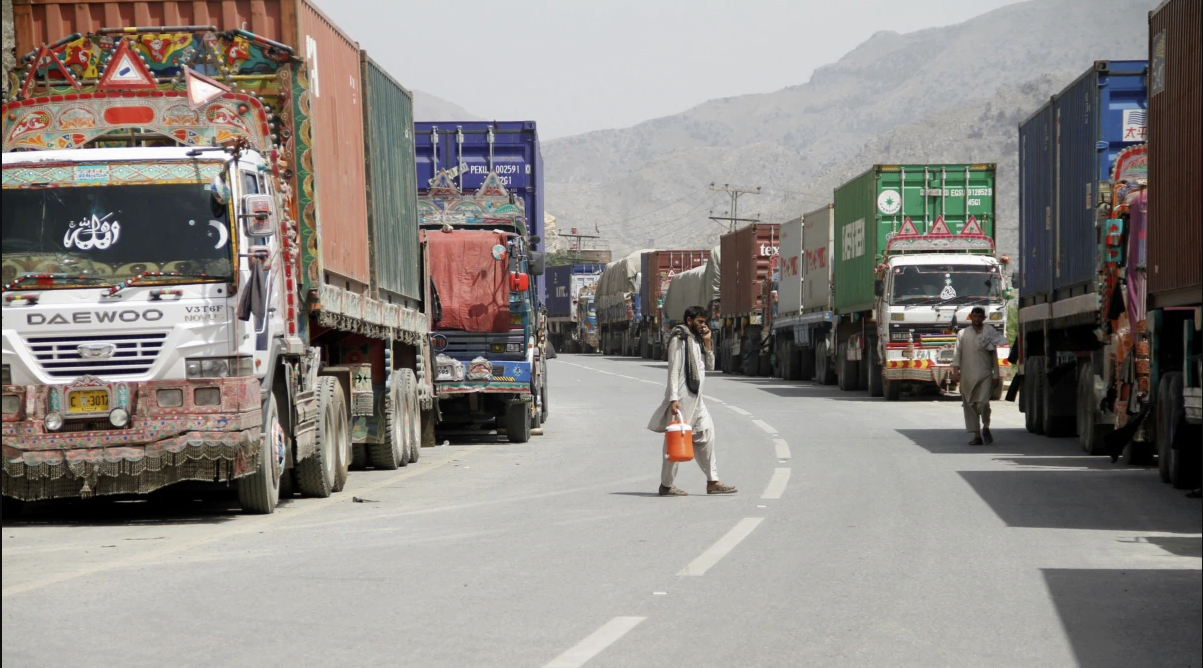The Joint Chamber of Afghanistan-Pakistan Commerce on Monday said that Islamabad has imposed new restrictions on the transit of Afghan commodities, creating hurdles in the way of traders to transfer their products via Karachi port.
“The problem is in invoice. The Pakistani government has increased the invoice of commodities such as tires, electric devices, medicines, oil and sugar,” said Najibullah Safi, head of the Joint Chamber.
“This action is not based on international norms. No one has the right to ask for invoice from us,” said Mohammad Younus Momand, acting head of the Afghanistan Chamber of Commerce and Investment (ACCI).
According to the ACCI, Afghanistan exports 2 million tons of fresh fruits and other materials via Afghanistan to the Central Asian Nations and that the new restrictions will damage the transit and businesses between the two countries.
“They also import gas and oil and cotton as well steel from Central Asia. It will affect Pakistan itself and the Central Asians,” said Khanjan Alokozai, a member of the ACCI.
Meanwhile, the Ministry of Industry and Commerce also said a delegation of the Islamic Emirate has travelled to Islamabad to solve the issue.
“They must not put pressure on our invwstors and private sectors. Otherwise, we are obliged to think of alternative. We are trying to solve this and our representatives have gone to discuss it,” said Akhundzada Abdul Salam Jawad, a spokesman for the MoIC.
Afghanistan imports its commodities from China, Indonesia, India and European countries via Karachi port.













